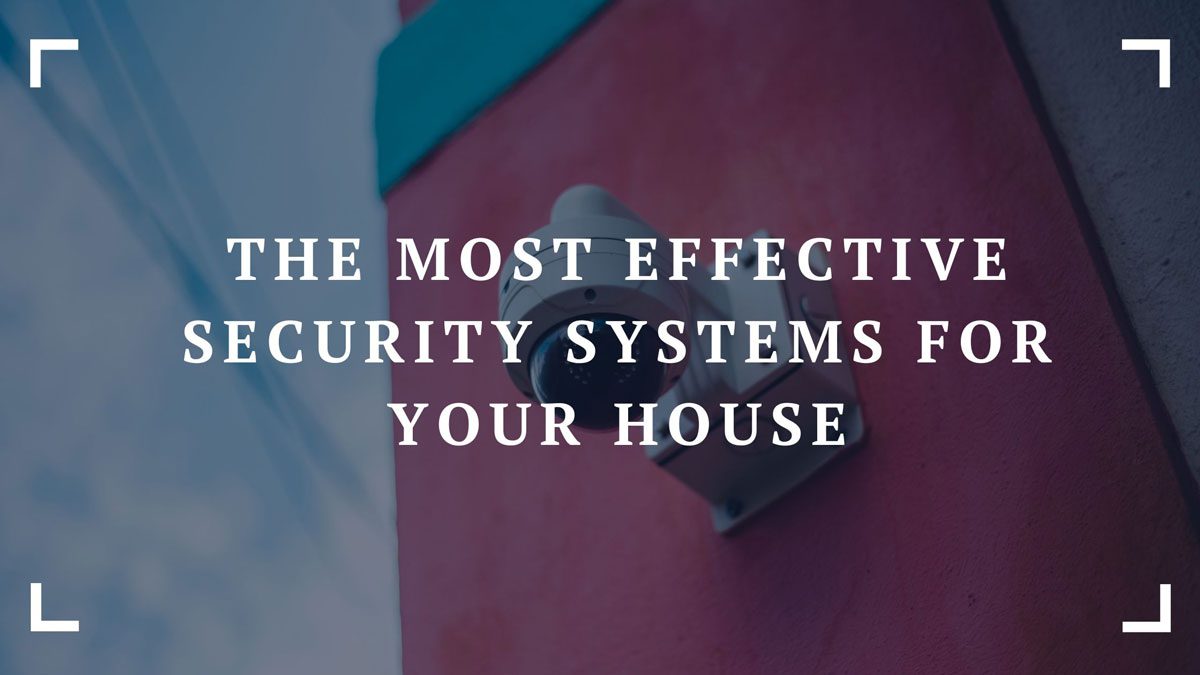Ensuring the safety and security of our homes has always been paramount. As the technological landscape continues to evolve, the security industry has not lagged behind. With the rise of smart homes and digital tools, homeowners now have an array of advanced security systems at their disposal. This article will provide an in-depth look into some of the most effective security systems available today.

Traditional Alarm Systems
These are the systems that have been around for years. They typically consist of door and window sensors, motion detectors, and a central control panel. When the system is armed, any breach results in an alarm sounding. Some of the systems are:
- Wired Alarm Systems: This system connects the sensors to the control panel via wires. It is generally considered reliable since there’s no risk of interference or the signal being hacked.
- Wireless Alarm Systems: These use radio frequency signals to communicate between sensors and the control panel. It’s more flexible in terms of placement and is suitable for houses where wiring might be an issue.
Smart Home Security Systems
With the rise of IoT (Internet of Things), smart home security systems have come to the forefront. These typically integrate with other smart devices in the house and can be controlled via a smartphone or computer. Some features include:
- Smart Cameras: Advanced motion detection, facial recognition, and even the ability to differentiate between an animal, vehicle, and human. Some even come with two-way communication.
- Smart Doorbells: These often include cameras, allowing homeowners to see and communicate with whoever is at their door, regardless of their location.
- Smart Locks: Grant or deny access remotely. Some even allow for temporary codes, making them great for guests or workers who might need short-term access.
- Home Automation Integration: This includes the integration of lights, thermostats, and even smart blinds. The house can give an impression of being occupied even when you’re away.
Monitored vs. Unmonitored Systems
- Monitored Systems: A third-party security company monitors these. In the event of a breach, the company will first contact the homeowner. If they cannot reach them or if the breach is verified, they contact the authorities.
- Unmonitored Systems: These are typically DIY setups where the responsibility of monitoring lies with the homeowner. Any breach results in an alarm, but it’s up to the homeowner to contact the authorities.
Environmental Sensors
Apart from burglaries, homes are also vulnerable to environmental hazards. Modern security systems integrate environmental sensors to detect threats like:
- Smoke and Fire Detectors: These are crucial for early detection of fires, potentially saving lives and property.
- Flood Sensors: Useful for homes in flood-prone areas or just to detect any water leaks in the home.
- Carbon Monoxide Detectors: Carbon monoxide is a silent killer. These sensors can detect its presence, alerting homeowners before it reaches dangerous levels.
The Importance of Homeowner’s Insurance
While advanced security systems provide an essential layer of protection, it’s vital to emphasize that they should not replace homeowner’s insurance. Even the most sophisticated system can’t guarantee complete prevention from natural disasters, accidents, or other unforeseen incidents.
Homeowner’s insurance provides coverage for not just theft but also damages from fires, floods, and other incidents. Think of your security system as the first line of defense and insurance as the safety net, providing financial protection if something goes awry.
For those concerned about the potential costs associated with homeowner’s insurance, there are ways to manage these costs effectively. One recommended approach is to look for an online homeowners insurance quote. By comparing rates and understanding what each policy covers, homeowners can find a balance between affordable premiums and adequate coverage.
In essence, minimizing coverage isn’t the way to save money. Instead, shopping around, understanding your specific needs, and leveraging the digital tools available can lead to significant savings.
Conclusion
The realm of home security has grown leaps and bounds. From traditional alarm systems to smart home integrations, homeowners have a plethora of choices to ensure their property’s safety. However, it’s essential not to be lulled into a false sense of security. A robust security system is an excellent tool, but it should complement, not replace, a comprehensive homeowner’s insurance policy. Balancing both will ensure that your home remains not only secure but also prepared for any eventuality.


